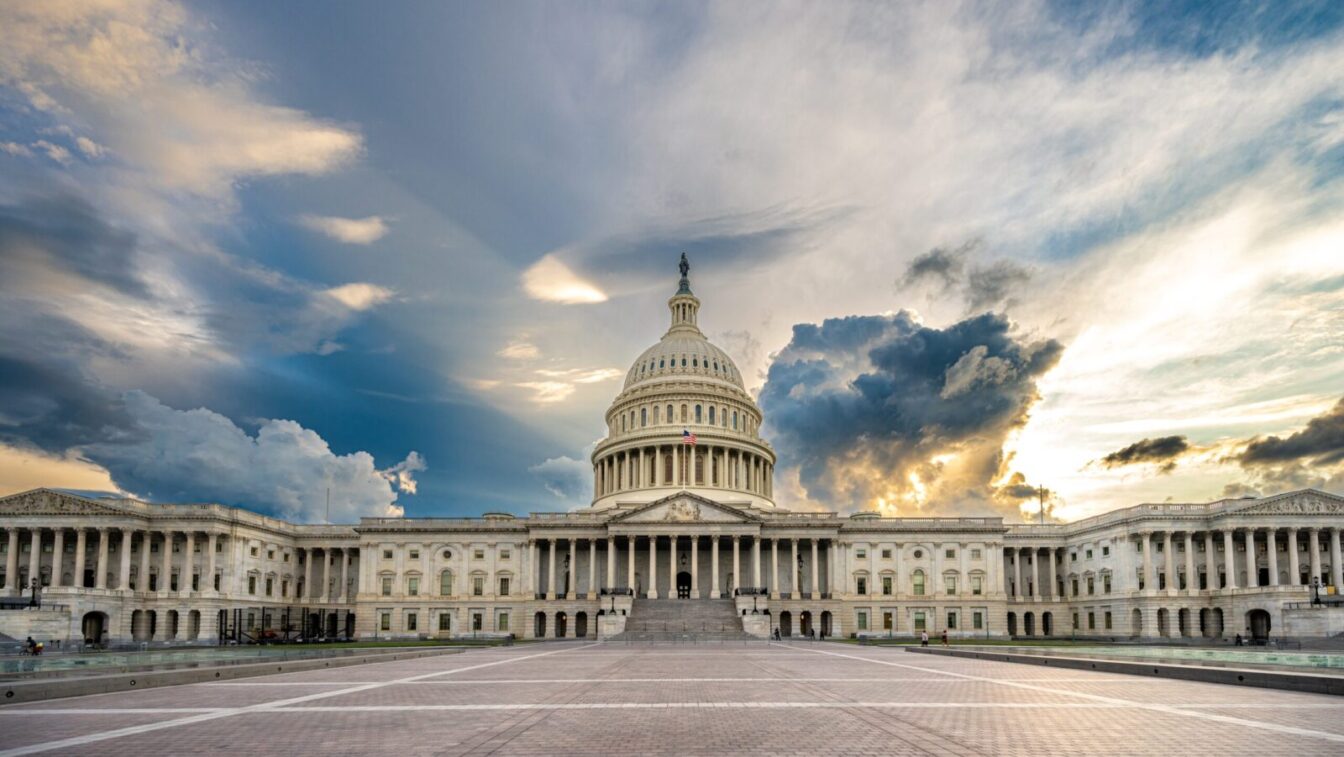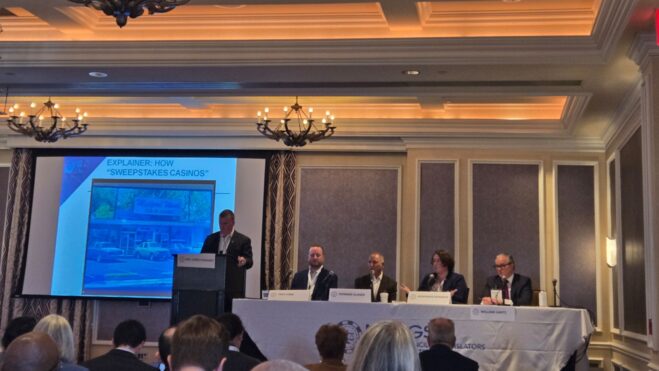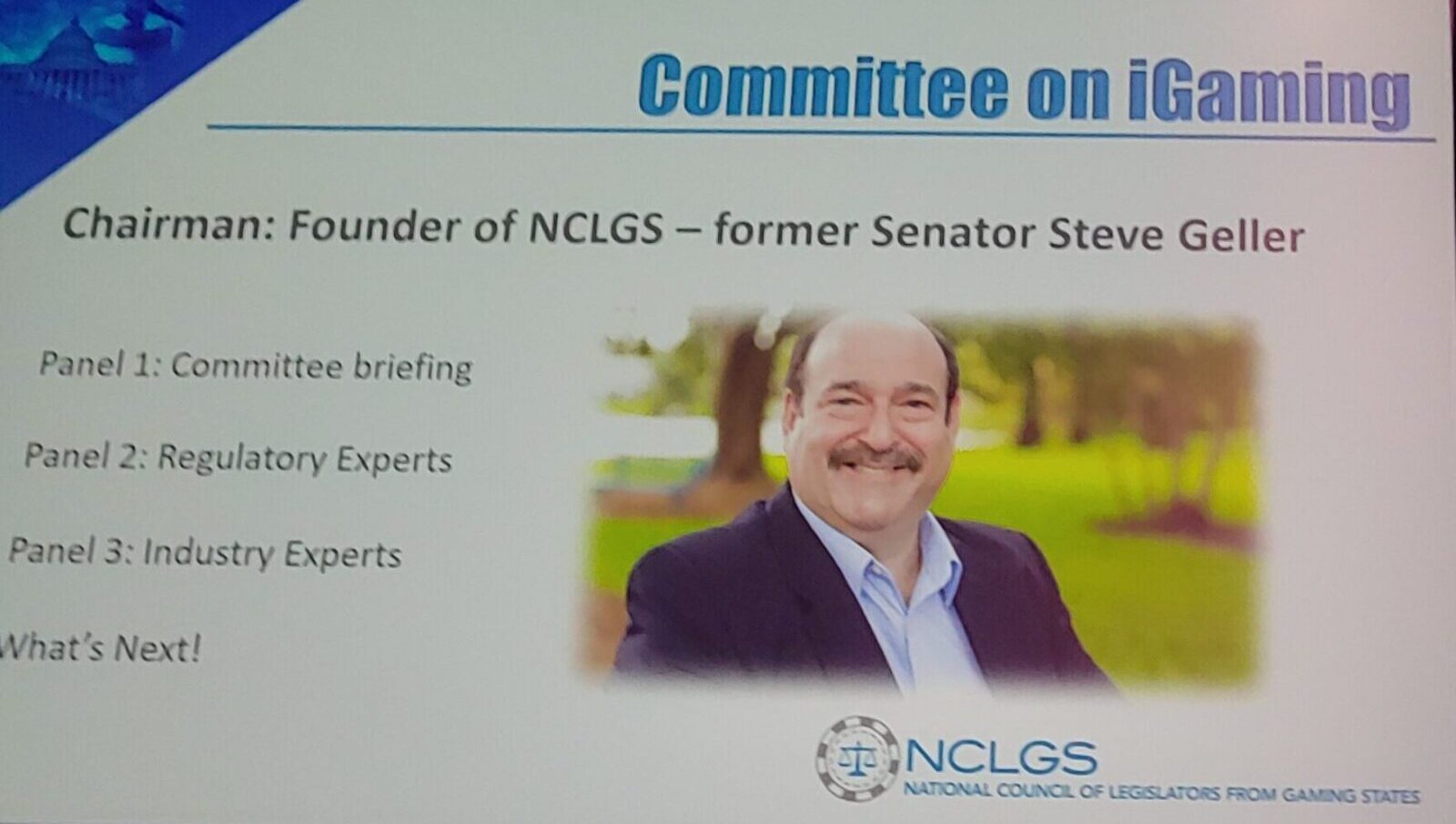Ruddock Report: The ‘Cannibalization’ Debate Keeps Blocking The Legalization Gate
Three of the nine states with iCasino hopes this year have already been derailed
3 min

Our monthly look at the online gambling landscape includes the current legal and regulatory landscape, prospective online casino and online poker states, and significant trends to watch.
Last month, I tentatively used the word “momentum” to describe the numerous online casino bills that had been introduced across the country. This month’s word is “derailment,” as several of these efforts, including two of the top candidates, have already been sidelined.
LEGAL ONLINE GAMBLING ONLINE POKER-ONLY
ACTIVE LEGISLATION LEGISLATIVE EFFORTS FAILED
Trend to Watch: Cannibalization
Online casino legalization debates in Maryland, Indiana, Wyoming, and Virginia have focused on cannibalization, with both sides unwilling to give an inch. The stalemate benefits those opposed to legalization — a group that has formed a trade organization called the National Association Against iGaming.
As I’ve argued in the past, the term itself is the ultimate taboo and a losing battle for advocates. Attempts to reframe the debate have failed to gain traction, leaving supporters fighting a losing battle: “We are not cannibals.”
Moreover, the argument that online gambling does not cannibalize land-based casino revenue conflicts with the gambling industry’s own acknowledgment that other forms of gambling, like sweepstakes sites and offshore platforms, are hurting their bottom line. This inconsistency raises a critical question: Why should regulated online casino gambling be the exception?
The current candidate list: three down, six to go
We are less than two months into 2025, and nine states have already introduced online casino bills. That’s the good news.
The bad news is three of those states have already shelved their efforts (Wyoming, Indiana, and Virginia), and the likelihood of any state passing a bill this year is slim to none, with slim heading for the door.
The Ruddock Report will revise this list as new bills are introduced.
Maryland
2025 was always a longshot, with a ballot referendum on online casinos the more amenable path in Maryland. Considering the points raised by land-based casinos and labor unions during hearings, similar issues are expected to arise in 2026.
Virginia
Virginia’s online casino bills limit licenses to existing B&M casinos. The bills call for a $1 million license fee and a 15% tax rate, with 2.5% earmarked for problem gambling. Locke and Simons pulled the bills for further study. At issue was a fiscal note that concluded iCasinos would hurt the state’s lottery sales.
Wyoming
- HB 162, Sponsored by Rep. Bob Davis
Wyoming’s 2025 online casino push lasted about as long as its 2024 push, which lasted all of a week. The debate continues to revolve around cannibalization, with two Wyoming tribes testifying in opposition to HB 162 in a Jan. 30 hearing. The tribes contend that the proliferation of gambling options in the state has already cut into their revenue. The bill failed to gain support in committee and is effectively dead.
Indiana
- HB 1432, Sponsored by Rep. Ethan Manning
The House Public Policy Committee (chaired by Rep. Manning) passed HB 1432 in a 9-2-2 vote on Jan. 28. But that appears to be the end of the road, as House Speaker Todd Huston has shelved the bill after it failed to gain traction in Ways & Means due to cannibalization concerns. Huston said, “There’s all sorts of moving parts about how it impacts communities and what it does overall to the gaming environment in Indiana.” While not officially dead, it’s pretty much dead.
New Hampshire
- SB 168, sponsored by state Sen. Tim Lang
With efforts fizzling out in Wyoming and Indiana, New Hampshire is the new top contender, but that is akin to being the valedictorian of summer school. The state’s charity casinos still oppose the bill (even after amendments tethering licenses to land-based properties), but in a small bit of good news, a revised fiscal note led to the Ways and Means Committee passing SB 168.
Hawaii
A bill to legalize casino gambling has been shot down, while a sports betting bill has passed some minor committees. Given Hawaii’s anti-gambling history, the online casino bills are unlikely to pass.
New York
- S 2614, sponsored by state Sen. Joseph Addabbo Jr.
New York’s annual online casino bill has been introduced, but the state still faces several significant hurdles, including ongoing opposition from labor unions, the ongoing licensing of downstate casinos (not expected until the end of 2025) keeping further expansions of any kind sidelined, and a skeptical governor, as Gov. Kathy Hochul hasn’t shown any signs of supporting iCasinos.
Massachusetts
- HD 4084, sponsored by state Rep. Daniel Cahill
- SD 2240, sponsored by state Sen. Paul Feeney
- HD 2393, sponsored by Rep. David Muradian (text to come)
Massachusetts is in the midst of launching an online lottery, including slot-like instant-win games, so it could be some time before it tackles another gambling expansion. Still, the state has companion online casino bills and an RFP out for an online casino study. A third bill (HD 2393), sponsored by state Rep. David Muradian, who worked on the NCLGS model legislation, is likely the one to watch.
Illinois
- SB 1963, sponsored by state Sen. Cristina Castro
- HB 3080, sponsored by state Rep. Edgar González, Jr.
Two industry-friendly bills (a $250,000 licensing fee and a 25% tax rate) are up for consideration in Illinois — though if these bills move forward, you can expect those numbers to tick upward.
The efforts also try to address job loss by tying licensing to workforce numbers: “The Board may not issue an Internet gaming license to an owners licensee or organization licensee that has reduced the size of its workforce by 25% or more since February 28, 2020.” However, as noted in my STTP newsletter, “Proposing a 25% job reduction as acceptable seems out of touch with the perspectives of unions and traditional casino operators, who are concerned about market cannibalization.”





